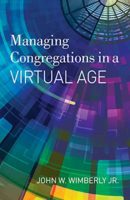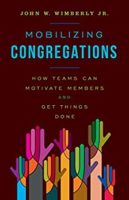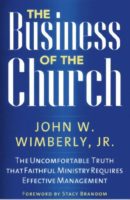
If ever there was an election with a clear message to the mainline churches, it has been the election of November 2024. To me, the message is: Church, get back to your core competencies, core mission, core message. Young people, especially, are already trying to improve the world. They need our help creating a theological and spiritual foundation for work they are already doing!
In 2015, the research firm Barna polled young “seekers” to determine what reasons might encourage them to attend a church. The top results, as reported to the United Methodist Church, were clear and revelatory:
- Church helps my spiritual development (39%)
- Opportunity to find out more about God (38%)
- Opportunity to make friends and nurture friendships (38%)
- Knowing that anyone will be welcomed into the church community (38%)
- Opportunity for support during difficult times (37%)
The participants want the church to be focused on God, the spiritual development and support of individuals, and a strong community where one can create healthy, lasting friendships.
What about Social Justice?
For those who will note that social justice is not on the list, Barna reports asked about the issues people ranked “Very Important.” Individuals responded: Education (47%), Poverty (35%), Healthcare (35%), Racial Issues (31%), Gun Control and Second Amendment Rights (30%), Homelessness (29%), and Environmental Responsibility (25%).
When asked about the causes they would be most likely to be motivated to engage with, these young seekers responded: Regularly Recycle Products (29%), Working In or Donating to a Food Bank (23%), Feeding the Hungry (19%), Assisting the Schools in Your Area (18%), Providing Clean Water to People in Other Countries (18%).
These young folks are not a bunch of couch potatoes. They have strong commitments to what many of us would consider to be key social justice issues and an equally strong commitment to doing hands-on work that reflects their priorities. These responses correspond to what I have heard in my own interaction with Gen Zers and Millennials in congregations and beyond.
The seekers who might attend our churches already are hard at work creating a more just and sustainable society. They are doing what we preach that people should do. The church doesn’t need to spend all its energy on social justice programming. Instead, we need to create a theological and spiritual foundation for the work they are already doing!
Basic Skills
If we are to help spiritual development and generate more knowledge about God, we need to redefine the skills needed to be successful at the congregational level. For example, below are the “Expectations/duties” sought for its senior minister by a mid-size church in the Presbyterian Church (U.S.A.):
- Act as Head of Staff/Supervise Staff
- Lead adult class(es)
- Promote stewardship
- Attract young families
- Lead worship planning
- Serve as moderator of Session
- Encourage further community outreach
Interesting, eh? There is nothing about theological or biblical skills, spiritual growth, or supporting people through a spiritual crisis. I could list a bunch of similar “expectations/duties” for a Head of Staff. but I won’t bore you. Most of them are more or less the same.
We don’t need to blame congregations that put together a list like this—or clergy who equip themselves to be hired by a congregation with these priorities. The issue isn’t what is wrong about the church’s priorities. That way of framing the issue focuses too much on the present and past. The future-oriented issue is how do we align our expectations for clergy with the needs of seekers.
What Skills Congregations Need
Congregations must be the driver in this process. Clergy want to serve congregations and will develop the skills needed to do so. If congregations make it clear that they want clergy with the theological and biblical skills to nurture spiritual growth, we will soon reorient ourselves away from the “busyness of the church” toward the actual work of the church.
Since we want to attract seekers, we need clergy with specific skills in social media and communications. Currently, clergy are skilled at meeting the needs of the Boomers, who increasingly need chaplaincy-type ministry—taking care of people with physical and medical needs. Obviously, we cannot forget those needs. But if we over-focus on them and ignore the younger generations, we will not attract seekers for another generation of ministry.
I am not recommending we “go back” to beliefs and practices that worked in the past but won’t work today. But there is a core of beliefs and practices that have worked for 2000 years to grow congregations—and more importantly, to help Christians grow spiritually. Younger generations have re-identified this core for us. As we give them what they want and need, we will revitalize our congregations and empower our service to the world.
John Wimberly is an experienced pastor and consultant. As a consultant, he has worked with congregations and judicatories on strategic planning, staff designs for the 21st century, and congregational growth as well as financial and administrative management. He has MBA, MDiv, and PhD (theology) degrees. His books focus on effective management and leadership. John believes congregations can have a bright future!



